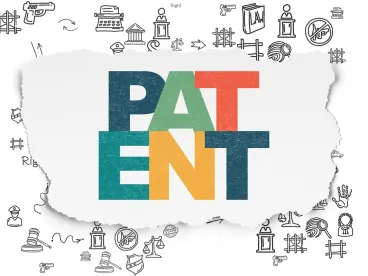Addressing the standard for mootness in inter partes review (IPR) proceedings following a district court noninfringement judgment, the US Court of Appeals for the Federal Circuit held that a petitioner’s IPR appeal was moot after the patent owner decided not to appeal the final judgment of noninfringement. ABS Global, Inc. v. Cytonome/ST, LLC, Case No. 19-2051 (Fed. Cir., Jan. 6, 2021) (Stoll, J.) (Prost, C.J., dissenting in part).
In June 2017, Cytonome/ST filed a complaint against ABS asserting infringement of six patents, including the patent of interest in this case. ABS filed a petition for IPR of all claims of the patent. In April 2019, the Patent Trial and Appeal Board (PTAB, the Board) issued its final written decision invalidating certain claims of the patent. Two weeks later, the district court granted ABS partial summary judgment, holding that the accused products did not infringe any of the asserted patent’s claims. In June 2019, ABS appealed the PTAB’s final written decision. In a briefing before the Federal Circuit, Cytonome/ST’s counsel filed an affidavit stating that Cytonome/ST “has elected not to pursue an appeal of the district court’s finding of non-infringement as to the patent and hereby disclaims such an appeal.” In June 2020, the district court entered final judgment, including as to non-infringement of the patent.
The Federal Circuit dismissed ABS’ appeal of the PTAB’s final written decision on the ground that the appeal was moot in view of the district court’s non-infringement judgment. The Court characterized the question as one under the voluntary-cessation doctrine. In the context of intellectual property infringement cases, the voluntary-cessation doctrine requires the property owner claiming mootness to prove that the “allegedly wrongful behavior could not reasonably be expected to recur,” i.e., that it will not assert the intellectual property right against the same accused products again. If it does, the burden shifts to the accused infringer to show that it “engages in or has sufficiently concrete plans to engage in activities” that would not be covered by the property owner’s non-assertion decision.
Applying the doctrine, the Federal Circuit concluded that Cytonome/ST could not reasonably be expected to assert infringement of the patent against ABS because ABS had already secured a district court judgment that the accused products do not infringe and Cytonome/ST disclaimed any appeal of the non-infringement judgment. In effect, ABS was insulated from liability for infringement, including for future infringement for products that are “essentially the same” as ABS’ currently accused products pursuant to the Kessler doctrine. Further, the Court found that ABS had not demonstrated it could reasonably expect Cytonome/ST to sue it for infringement of the patent in the future as ABS had not shown it had current or concrete future plans to engage in activities not covered by Cytonome/ST’s disavowal: “Cytonome’s disavowal of its right to appeal the summary judgment of noninfringement ‘estops Cytonome from asserting liability against ABS for infringement of the…patent claims in connection with the accused products, thereby allowing ABS to make, use, and sell those products freely’ and is ‘coextensive with the asserted injury in fact.’” It was not enough, in the Court’s view, for ABS to simply provide evidence of a pattern of serial litigation against it by Cytonome/ST on other patents. Because the mootness elements were present and the Court concluded that ABS forfeited any argument for vacatur by not raising it until oral argument, the Court dismissed ABS’ appeal for lack of jurisdiction.
Chief Judge Sharon Prost dissented in part to address the matter of remedy. In Prost’s view, the proper remedy was to vacate the PTAB’s decision because mootness resulted from Cytonome/ST’s decision to disclaim an appeal of the district court’s non-infringement judgment. That voluntary cessation on Cytonome’s part, in Prost’s view, entitled ABS to vacatur of the PTAB’s decision to avoid the “strange” result of Cytonome/ST being able to later claim estoppel on the basis of a decision ABS had appealed.




 />i
/>i
